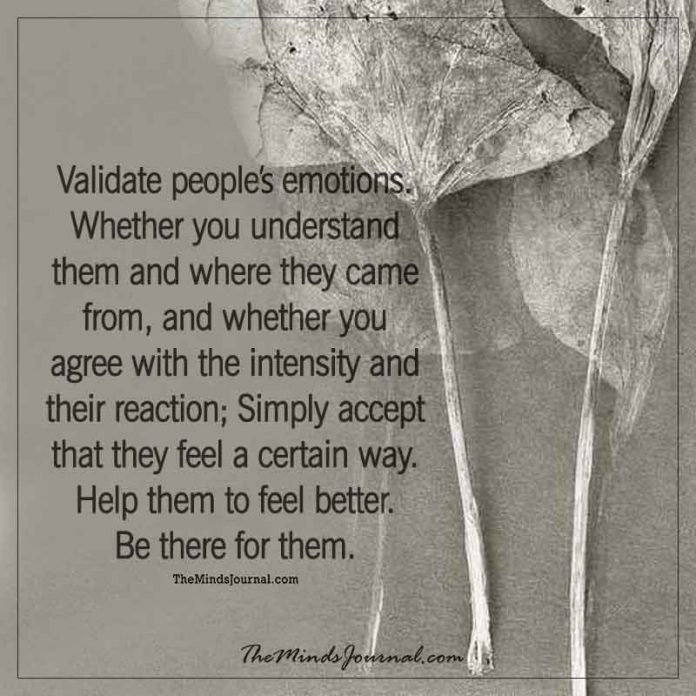Validation is a skill, but it’s also an art. It can be practiced and developed as we evolve in our relationships. Most of us need to feel like our partner “gets” us–like they can see things through our eyes and understand our point of view. Especially when couples get into a power struggle, or there’s a misunderstanding, validation can support the repair process.
Many of us have underlying fears about what will happen if we validate our partner. We’re afraid it means we’re sacrificing our truth, or that the balance of power in the relationship will tip and leave us at a disadvantage.
Related: 7 Reasons Why Mutual Understanding Is More Important Than Love In A Relationship
When A Couple Gets Stuck
Take Maria and Jacqueline, for example. They’ve just had a blow-out fight about Maria forgetting, yet again, to send a text saying she’ll be arriving home late from work, which would have helped Jacqueline plan her evening with their kids and put them to sleep on time.
In this situation, Maria may have a hard time “validating” Jacqueline’s frustration because she fears this will give her more ammunition to use against her in judgments and criticisms. Jacqueline, on the other hand, won’t validate Maria (although she knows she’s under a lot of pressure at work) because she fears doing so is tantamount to an endorsement of her irresponsibility and forgetfulness.

Pre-requisites For Successful Validation
When you validate your partner and affirm their point of view, does it feel like it gets used against you? Like your validation is turned into proof that they’re right and you’re wrong?
Here are a few important pre-requisites for practicing validation successfully with a partner.
1) Develop confidence in your own right to YOUR reality. This will help you affirm your partner’s reality more effectively. Otherwise, validation can lead you to feel like you’re losing your psychological footing.
2) Cultivate an emotional and psychological “balance of power” in your relationship. If your sense of personal power feels relatively equal to your partner’s, and you feel differentiated from them (e.g. you can be who you are and still stay connected to them, and visa versa) then it’s easier to validate them when there’s a difference of opinion or perspective.
3) Respect one another’s emotional, psychological, and physical boundaries. Fuzzy or frequently disregarded boundaries in a relationship decrease the safety that supports validation. You may both be worried that any validation will be co-opted as a way to dominate each other.
Related: 4 Ways To Restore Respect In A Relationship
Distinct AND Interdependent
If your attempts at validating your partner don’t go well, think about these validation pre-requisites. Maybe it’s time to focus on building your confidence in yourself and your right to your own reality distinct from your partner.
Or maybe it’s time to look at the power dynamic in your relationship and talk to your partner about it honestly, or with a professional’s guidance–exploring how a lack of psychological safety may be interfering with your ability to show up authentically and validate one another while also feeling secure in your bond.
Developing and strengthening your sense of self as both distinct from others, and interdependent with others, supports validation.
Follow Alicia Muñoz on Instagram for more informative and interesting posts, @aliciamunozcouples.
Written By Alicia Muñoz Originally Appeared On Alicia Muñoz










Leave a Reply